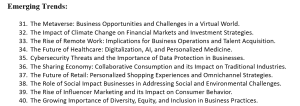Navigating Cybersecurity Threats: Protecting Data in the Digital Age
In today’s digital age, cybersecurity threats have become more prevalent and sophisticated than ever before. With the increasing dependence on technology for various aspects of our lives, the importance of protecting our data has never been more crucial. Cybersecurity threats can come in many forms, including malware, phishing attacks, ransomware, and data breaches. These threats can lead to devastating consequences, such as identity theft, financial loss, and even national security risks. As such, it is imperative that individuals, businesses, and governments take proactive measures to protect their data and secure their digital assets.
One of the most significant cybersecurity threats is malware, which refers to malicious software designed to disrupt, damage, or gain unauthorized access to a computer system. Malware can take many forms, such as viruses, worms, and trojans, and can be delivered through email attachments, malicious websites, or compromised software. Once infected, malware can steal sensitive information, delete files, or even render a computer system inoperable. To protect against malware, individuals and organizations should regularly update their operating systems and software, and install reputable antivirus and anti-malware programs.
Phishing attacks are another common cybersecurity threat that targets individuals through deceptive emails, messages, or websites. Phishing attacks often masquerade as legitimate entities, such as banks or online retailers, in an attempt to trick users into revealing their personal information or credentials. By clicking on phishing links or providing sensitive information, individuals can unknowingly expose themselves to identity theft or financial fraud. To mitigate the risks of phishing attacks, individuals should exercise caution when sharing personal information online and verify the authenticity of any requests for sensitive data.
Ransomware is a particularly insidious cybersecurity threat that encrypts a victim’s files or computer system until a ransom is paid. Ransomware attacks can have devastating consequences for individuals and organizations, as they can lead to data loss, financial extortion, and reputational damage. To protect against ransomware, individuals and organizations should regularly back up their data, avoid opening suspicious email attachments, and maintain robust cybersecurity measures, such as firewalls and intrusion detection systems.
Data breaches are another significant cybersecurity threat that can occur when sensitive information is unintentionally or maliciously accessed by unauthorized individuals. Data breaches can result in the exposure of personal information, such as credit card numbers, social security numbers, and login credentials, which can be used for identity theft or fraud. To prevent data breaches, organizations should implement strong access controls, encryption techniques, and data loss prevention strategies to safeguard their sensitive information.
The importance of data protection cannot be overstated, as the consequences of a cybersecurity breach can be severe and long-lasting. Not only can individuals and businesses suffer financial losses and reputational damage, but they can also face legal and regulatory repercussions for failing to safeguard their data. In an increasingly interconnected world, where data is constantly being shared and transferred online, it is essential that individuals and organizations prioritize cybersecurity and take proactive steps to protect their digital assets.
In conclusion, cybersecurity threats pose a significant risk to individuals, businesses, and governments in today’s digital age. From malware and phishing attacks to ransomware and data breaches, the potential consequences of a cybersecurity breach are far-reaching and severe. By implementing robust cybersecurity measures, such as updating software, using antivirus programs, and backing up data regularly, individuals and organizations can significantly reduce their risk of falling victim to cyber threats. Ultimately, the importance of data protection cannot be understated, as safeguarding our digital assets is essential for maintaining the security and integrity of our personal and professional lives.
ORDER A PLAGIARISM-FREE PAPER HERE
We’ll write everything from scratch

Get your college paper done by experts
Do my questionPlace an order in 3 easy steps. Takes less than 5 mins.

